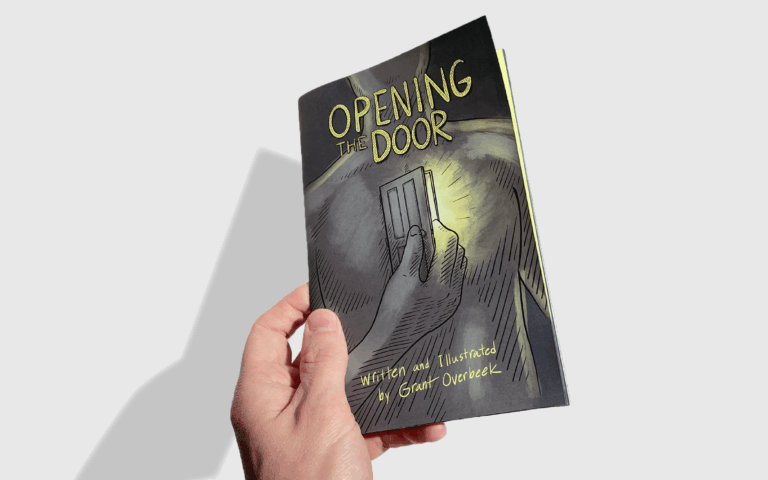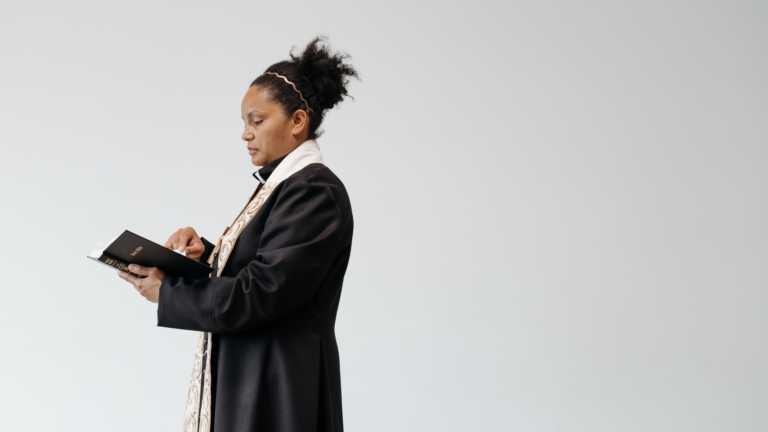Rebecca (name changed) is a member of a local church who faithfully serves the Sunday School department. Read her story of church leaders’ suspicion when she disclosed that she experiences same-sex attraction.
“I think maybe we should wait a while before you start leading in our Sunday School.” Even though I had braced for these words, I couldn’t stop the sinking feeling in my stomach and the prick of tears in my eyes. “I have a few questions for you,” continued Helen (name changed), the young adults minister at my church. Why? Because I am bisexual.
A month previous, after praying over the decision and feeling the Holy Spirit guide me, I went to Helen and asked to help lead Sunday School; she enthusiastically agreed. Why wouldn’t she? I had faithfully attended and served alongside the church for four years, and I had been a prominent leader in College Sunday School before my recent graduation.
At the same time, I felt like I needed to tell Helen that I was bisexual. Maybe since she knew I was strong enough in my faith to lead in the College class, knowing my sexuality shouldn’t cause her to doubt my faith. Maybe it was some act of integrity, wanting everything known so I didn’t have to feel like I was hiding something from my community of faith. Maybe I was just tired of feeling like I was carrying the weight of bisexuality alone. Perhaps it was a combination of all of these. Regardless, one night at the end of our weekly one-on-one meetings, I came out to her.
I thought it went as well as it could have. I expressed my commitment to a historic sexual ethic while admitting some ongoing challenges with living that out. I had strong feelings for a female friend, and I was having a hard time navigating all my emotions. Helen didn’t say anything negative, we prayed as usual to end our time, and she hugged me goodbye. Sharing that I was bisexual was treated like it was no big deal—as it should be. Now Helen knew something that could help her love me better, and that was that. Awesome.
Until the next week, when she pulled out a folded piece of yellow notebook paper with a list of questions on it:
“Do you believe the Bible is true?”
”Are you dating a girl?”
“Do you think you will date a girl?”
“Are you sure you believe the Bible? All of it? Even the parts about homosexuality?”
“I can’t have you teaching that homosexuality is okay. Can you do that?”
“What do you believe about marriage?”
”You said you identify as bisexual. Why would you do that if it makes it sound like you identify with something sinful?”
“You can’t teach if you don’t believe the Bible.”
Answering the string of questions felt less like willingly helping a sister in Christ understand my convictions and more like cooperating with an interrogation. Each question seemed packed with an unspoken threat: If you don’t answer all of my questions correctly, you don’t belong here. I had worked so hard to be a part of this community, and in that moment I felt like all of that was ruined.
My head swam with fears; I had heard many stories of churches throwing out their queer*** brothers and sisters. What if she tells everyone? I’m not ready to tell everyone. What will people do if they know? What if I have to leave?
At last, Helen finished her questions and looked at bit uncomfortable, as if finally realizing the accusatory ice in her voice was in vain. There was a pause, and then, “Just so you know, me asking you to wait to lead has nothing to do with your sexuality. I just don’t think we know each other well enough yet.”
Liar.
We had known each other for four years! Four years of helping lead another Sunday School class, Sunday brunches, Christmas parties, volunteering, hugs at the beginning of our church service. Defeated, I trudged to my car.
I cried all the way home.
Eventually circumstances improved. I learned that Helen told a handful of leaders without my permission, but those leaders were less worried than Helen was. They encouraged her to allow me to lead Sunday School. None of those leaders reached out to me about my story, which is both good and bad, I guess. Since then I’ve come out to several people in my class, and that has gone well. But the limited positive responses from people at my church are an exception to the rule.
Too often, queer Christians are vetted for entry into their own communities because their churches assume they have rejected a historic sexual ethic. Then if Christians like me don’t answer perfectly, the door is slammed in our faces. There is no such vetting for our straight peers, regardless of what temptations they may be facing. As soon as we come out, we are treated as masqueraders that have been lying about our whole identities. My encounter with Helen made me reluctant to trust her again, and I am continuously watching my words lest I be put back under the microscope. I don’t want to make sense of my story alone, but when I’m made to feel ashamed for my story and when my story is shared without my permission, I’m left without much of a choice.
Even though my church responded in what was probably the best way they knew how, having my faith questioned over and over again was incredibly hurtful and completely unnecessary.
Straight Christian brothers and sisters, please realize that making sense of our sexualities is difficult enough for gay Christians without having you doubt us. Don’t assume that we have abandoned a historic sexual ethic just because we are queer. Hold our straight peers to the same standard of holiness. Don’t single us out for interrogation just because we experience attractions we did not choose and cannot change. Welcome diversity, make us feel heard, and help make our churches places where we can all serve the Lord and grow together.
Give today so that money is never a barrier to churches learning how to support Rebecca and other Christians who experience same-sex attraction.
***The word queer is used here as an umbrella term for all sexual and gender minorities—people who experience same-sex attraction, experience no sexual attraction, or experience gender identity questions. This word is not meant to communicate anything about the individuals’ sexual ethics, relationship patterns, or gender expression.







Robert Breton Phillips
Rebecca,
I feel your pain of not being accepted after personally sharing something that got highly judged as I got similar treatment with my mental health. It’s like I was adorable then I told some friends about a hospitalization and it’s taken nearly 15 years to be acceptable to the church again. I am finally being included in teaching a class but it was like I had to be some perfect Christian that confessed to trendy communal sins like pornography, greed, and high ego. It’s like if I was accepted than why not just accept me the way I am? I think the idea that one has to “more Christian” to lead is so Westernized versus Christ like it makes me sick. I am for people (including me) and you who seek that which brings life and love for Love Endures Forever.
Sincerely,
Robert Breton Phillips